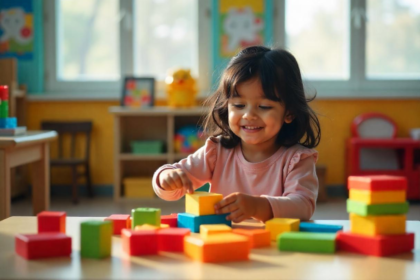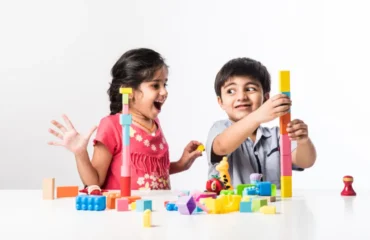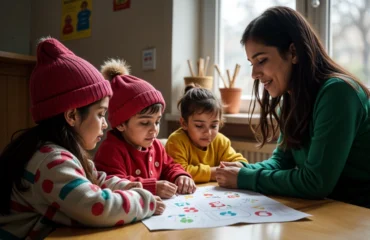
When we think of preschools, the only thing that comes to our mind is those tiny backpacks and those tiny steps toward learning. Getting enrolled in a preschool is essential as it lays the foundation of a child’s academic and social development. What is more important is to know what is the right preschool age in India for getting your child enrolled.
In the words of Albert Einstein, “Education is not just about learning facts, but the training of the mind to think”. In a country as diverse as ours, where every state, religion, and culture offers something unique, the preschool journey is simply not about mugging up facts. It’s a fun, play-based learning experience for children where they are exposed to different cultures and circumstances. In this article, we will explore the preschool scenario in India and learn about the right age for preschool. So let’s get started!
What Does Preschool Education Look Like in India?
Preschool education in India has come a long way in the last few decades, evolving from informal daycare services to structured, activity-based learning environments. As parents increasingly recognize the importance of early childhood education, the landscape of preschools in India has diversified to cater to different learning needs, cultural contexts, and educational philosophies. Here’s a look at what preschool education typically looks like in India today:
Types of Preschool Institutions in India
- Nursery Schools / Play Schools.
- Montessori Schools.
- Kindergarten (KG).
- Play-Based and Activity-Based Preschools.
Key Features of Preschool Education in India
Play Based Learning: In India, a significant portion of preschool education is based on play-based learning. Research has shown that children learn best through play, as it stimulates their imagination, cognitive skills, and social development.
Focus on Socialization: Preschools in India put a strong emphasis on social skills. These early years are critical for children to learn how to interact with peers, share, and cooperate. Teachers guide children in developing positive relationships, learning about emotions, and expressing themselves appropriately.
Basic Academic Skills: While play-based learning dominates, preschools in India also focus on preparing children for formal schooling. Some of the early learning concepts include language development, numeracy skills, and general knowledge.
Motor and Cognitive Development: Preschools incorporate activities designed to build fine motor skills like drawing, cutting, and playing with clay and gross motor skills like running, jumping, and climbing. These activities are essential for physical development and coordination.
Emotional Growth: Preschools in India also emphasize emotional development. Teachers help children recognize and express their emotions, build self-confidence, and deal with challenges in a constructive way.
Also Read: First Step to a Bright Future: Exploring the Importance of Preschool Education
What is the Right Age for Preschool in India?
Identifying the best age to start preschool can be a challenging task for parents. In India, the ideal age for preschool typically falls between 3 to 6 years, but it depends on various factors like your child’s development, family needs, and the type of preschool program you choose. Here’s a closer look at the ideal preschool age and what to consider before making the decision.
The Typical Playschool Age Range in India
Preschool (Nursery or Kindergarten) in India is generally meant for children aged 3 to 6 years, and the age breakdown is typically as follows:
Playgroup (Age 2-3 years): Some preschools start at this age for children who are ready to begin socializing and learning basic routines. Playgroup is often the first introduction to formal education.
Nursery (Age 3-4 years): The most common starting point for many children, where they begin learning foundational skills like colors, shapes, and basic socialization.
Lower Kindergarten (LKG) (Age 4-5 years): This level introduces more structured learning, including basic reading, writing, and math concepts.
Upper Kindergarten (UKG) (Age 5-6 years): UKG prepares children for primary school by focusing on more formal academic skills, social development, and school readiness.
Preschool education in India is an exciting, diverse, and evolving field. It plays a critical role in the early development of children, laying the foundation for lifelong learning.
FAQs:
What age is best for playschool and kindergarten?
Usually, the best age for playschool and kindergarten is 2.5 to 3.5 years for play school and 3 to 4 years for kindergarten. However, it also depends on the child’s development and readiness for preschool.
What age is best to start play school?
The best age to start play school is between 3 to 5, but it also depends on the child’s development and overall readiness to go to playschool.





